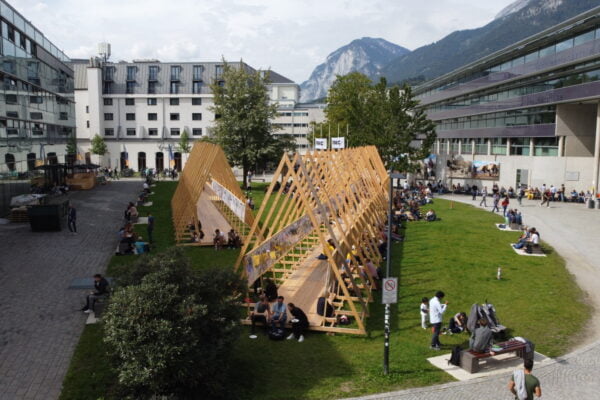
NAME:
SOWI - Garden
BUILDING:
SOWI
FLOOR:
0
TYPE:
Garden
CAPACITY:
2000
ACCESS:
Public Access
EQUIPMENT:
---
High mountain Asia (HMA) is considered the most important “water tower” of the world as it sustains millions of people downstream. Mountain precipitation being the main driver for the water cycle has also acted as a key trigger for natural disasters in this region resulting in thousands of casualties and billions of euros in economic damage during recent decades.
Knowledge on precipitation patterns is therefore key for the water security and protecting the region from natural hazards. In this region, orography, climate and land cover interacts with precipitation at different temporal and spatial scales and results in extreme variation in precipitation within limited lateral distances. Our current understanding of precipitation patterns within HMA are mainly based on past modelling and data ensemble products. Yet these products often do not capture this complex interaction due to their coarse grid and poor validation, especially above 4000m, due to the lack of observed meteorological data.
To address this knowledge gap, this research will investigate present valley-scale precipitation patterns by analyzing a decade of high altitude meteorological field observations in the monsoon-dominated Langtang Valley, Nepal. The data is measured by a network of tipping buckets, weather radars, pluviometers, automatic weather stations and snow observatories ranging between 2300 to 5350m. With this data, annual, seasonal and diurnal precipitation timeseries are researched to provide insight into the interaction between the monsoonal climate, orography and local valley-scale winds that drive the heterogeneous precipitation patterns within the valley. Results from this research will be used to further validate past modelling and ensemble products in this region.

We and use cookies and other tracking technologies to improve your experience on our website. We may store and/or access information on a device and process personal data, such as your IP address and browsing data, for personalised advertising and content, advertising and content measurement, audience research and services development. Additionally, we may utilize precise geolocation data and identification through device scanning.
Please note that your consent will be valid across all our subdomains. You can change or withdraw your consent at any time by clicking the “Consent Preferences” button at the bottom of your screen. We respect your choices and are committed to providing you with a transparent and secure browsing experience.